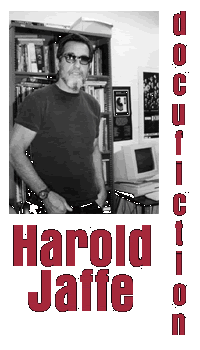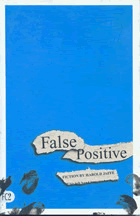
Geeks Dream
|
|
Heather-Jeanne confesses to having felt the urge, imagined the moment, even permitted herself the purely hypothetical pleasure of stabbing a tormentor in the throat or pushing him off a cliff, zap, out of her life. "I totally understand," says the pert, red-haired sophomore at New Hampshire's Portsmouth High School. "I think everyone has that moment when they think about killing someone. "It's a rush." Heather-Jeanne by no means By no means condones the coldly calculated slayings of 12 students and one teacher by two armed-to-the-teeth, black trench coat-wearing teens at Columbine High School in Littleton, Colorado, on April 20, Adolph Hitler's birthday. But like a surprising number of young people across the nation, she sees the massacre through the prism of someone who was once, she says, "a mega-geek, one of the total outcasts" in her high school. For all the revulsion, anger and hatred directed at the Columbine High School killers, the two members of the so-called Trench Coat Mafia have become overnight objects of empathy--sometimes even sympathy--among young people who consider themselves social misfits, forced to the fringes of their peer groups. Although these teens are of course horrified by the slayings, they tend to blame the cliquish subcultures of what they characterize as uncaring school systems, rather than the two youths who went on their obscenely violent Obscenely violent rampage. The vast communities of Internet chat rooms and bulletin boards have been pulsing with I-told-you-so and that-could-be-me posts. Several teens openly admitted to identifying with Dylan Klebold and Eric Harris, who police say took their own lives at the end of their psychotic stroll through the suburban Denver high school. "These two geeks were pushed so far over the edge that they used their only instinct left as a defense mechanism," wrote one youth on a school violence bulletin board. "Watch out--I could snap next," he added ominously. Another wrote: "So in the fullness of their love they killed a bunch of bleeping gizmos. So bleeping what!" At New York City's Norman Thomas High School, Tennessee transplant Cory Abdur-Rahim leaned against a graffiti-defaced wall on an inner city basketball court, long-fingered hands in his jeans, and talked about the social gauntlet a newcomer has to run when he or she arrives at a tough school in a big city. "I could understand it," Rahim, a whippet-thin ninth grader, said of the frustration. "Everybody gets picked on, and some people, they take it too far. "But I could understand it." The killings in Littleton and a half-dozen school shootings the previous year throughout the country have become something of a Rorschach blotter for people to read what they want into what's wrong with America in general --and its kids in particular. Easy access to guns and munitions of all kinds. Hyper-violent video games. Shocking song lyrics. The anything-goes Internet. Street drugs like crack and ice and ecstasy. Permissive parenting. A bad batch of DNA. The demonic tug of the Millennium. Although each of these has been considered a culprit to varying degrees, the leading indicator of choice for the moment is the old high school caste system that lumps kids into cliques with Darwinian callousness. At least until graduation, after which the high school star quarterback may well be offering to check the oil in the geek's fire-engine Geek's fire-engine red Ferrari. Yet some ethics watchdogs believe the Revenge of the Nerds theory does not fully explain how one designated dork becomes a schoolmate-slaughtering looney tunes. While another morphs into Microsoft multi-billionaire Bill Gates. And if history is any guide, the more we learn about the Colorado case, the more theories--and laws--will be offered as answers. To fit any number of political agendas. F. Roland Plantz is a Michigan State University Professor of Criminology and Ethical Behaviorism who has studied gang culture and youth violence for 17 years. Dr. Plantz maintains that the massacre in Littleton is symptomatic of a broader erosion of civic values ranging from elected officials seducing their interns to raging motorists shooting each other on the freeways to inner-city "gangstas" wearing the severed ears and genitals Severed ears and genitals of their victims as trophies. Moreover our depersonalized, highly competitive culture compels parents to insist that their kids go the whole nine yards, not take a back seat to anyone, whether on the playing field, in the classroom, or in the social arena. "It's all about getting what's yours, payback," Professor Plantz points out. "And with the easier availability of weapons, the conflicts have naturally become more deadly." Plantz draws a parallel between the hopelessness felt by some suburban "geeks" marginalized in their schools and by poor black or colored youths marginalized by society in general. "Most marginalized people will make a reasonable adjustment to compensate," Plantz says. "A smaller percentage will become violent, either to others or themselves." Plantz asserts that a lack of parental involvement in kids' lives, along with schools that could care less about incorporating ethics Incorporating ethics and civic values into their lesson plans, are bigger culprits than a violent, bordering on out-of-control, profit-crazed entertainment media. Statistics show that much of the discussion leading up to a teen mass murder occurs on the Internet, according to Dr. Plantz. Thus parental involvement would reasonably include becoming computer literate, even constructing personal Web sites. As Dr. Plantz puts it, "You don't have to be a brain surgeon to construct a Web site." But if individual parents simply lack the facility to construct a Web site all they have to do is consult their yellow pages to locate a federally-licensed Internet technician. Mass murderer Dylan Klebold, on his personal Web site, boasted about his collection of Nazi memorabilia and openly vowed to murder fellow students at Columbine High, even singling them out by name. But neither of his parents knew how to surf the Web. Surf the Web. Dr. Plantz also emphasized the obvious but often overlooked point that parents should have their children psychologically evaluated twice-yearly, if at all possible. In the instances of Eric Harris and Dylan Klebold, each of the teens had been diagnosed with Attention Deficit Disorder and prescribed Ritalin. Although Klebold's stepmother said that she had the impression her stepson was spitting out the Ritalin after her back was turned. According to the autopsy report, neither teen had traces of Ritalin in his body. Malik Williams, a senior at Strom Thurmond High School in Columbia, South Carolina, says he has "sympathy to a point" for the Columbine killers, even though they purportedly targeted at least one student just because he, like Malik Williams, was black. "If African Americans could put up with the prejudice that happens every single day, these white guys from the Trench Coat whatever "Trench Coat whatever could have dealt with their thing without killing," Williams said. Yet for all the brutality of the crime and the neo-Nazi proclivities of the two killers who timed their mass murder to fall on Adolph Hitler's birthday, the tragedy has at the same time become a rallying point for "geek pride." Dee Dee Price, a West Virginia high school student who exchanged e-mails with a reporter but wouldn't identify her home-town, said vandals sprayed "death to jocks and preps" and "Trench Coat Mafia" on her school's volleyball court after the killings. By third period, hundreds of students had gone home, and officials ended up closing school before noon "because everyone in school was shitting their pants," "Shitting their pants," Dee Dee Price said. At a Web site called Slashdot--"News for Nerds"--the dialogue over the shootings was voluminous and passionate. Wally Cox of Boston talked about how he often was beaten up or called a "freak" or a "drama fag" during his years at Sacco & Vanzetti (Mass) High School in the early '90s. One of his friends was "beaten bloody one night by a whole truckload of jocks, then sodomized with a drum major's baton," he claimed. "A kid I knew from study hall offered to sell me a Taurus 9mm semi-automatic with a 17-round clip." Young Cox fantasized about walking through the halls of Sacco & Vanzetti High, holding the Taurus in a two-handed grip, arms rigidly extended, turning left, then right, "blasting to shit everyone who ever kicked my ass, made fun of me, or ignored me. "I'd need a whole lot of ammo, but I would make them all pay. "One thing stopped me. "I couldn't cough up "Couldn't cough up the sixty-five bucks," Wally said. At Slashdot, Internet surfers complained about a post-Littleton trend of "geek profiling"--compiling databases on kids who have taken on some of the coloration of the Colorado killers. One self-confessed geek surfer, Heldon (Zook) Teckler, from Texarkana, Texas, said that just because he dyed and spiked his hair, pierced his nipples and scrotum, wore black, and had a swastika tattooed on his forehead, Charles Manson style, he was "gang-banged to within an inch of my life by a posse of Afro "Posse of Afro-American basketball players, and they were all 6-6 or bigger. "They were fuckin' huge, man." Adam R., from Mount Fury High School in Moscow, Idaho, said that during a discussion of the mass murders in his social studies class, he remarked that while he could never condone any killing, he "could, on some level, understand these kids in Colorado, the killers." After the class he was called to the principal's office and told he had to undergo seven counseling sessions or face expulsion. Seven was the maximum allowable number of sessions underwritten by Kaiser Permanente, the school district HMO. Heather-Jeanne says that although she understands why someone would be driven over the edge by tormentors, she no longer considers herself a geek. Since she began taking Paxil, a prescribed anti-depressant and anti-panic medication four-and-a-half months ago, she has found herself re-learning to smile, transcending cliques, and making friends with different types of people. "People finally realized that I wasn't weird just because I didn't have the money to buy a lot of cool "Lot of cool clothes." |
|
Return to the top of the page.
Copyright © 2001-2013 by Harold Jaffe. All rights reserved.
|
 from False Positive
from False Positive